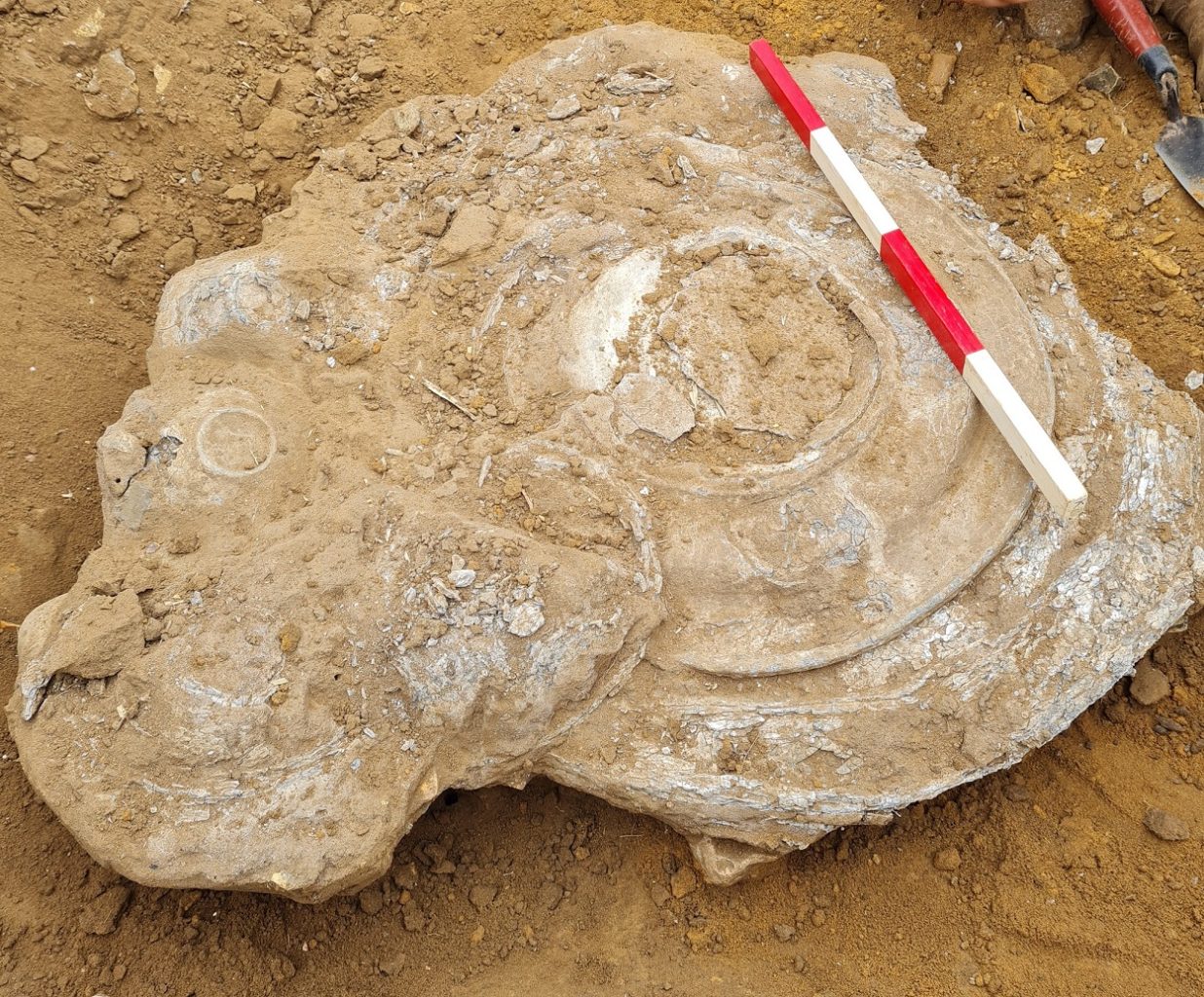Archaeologists from Wardell Armstrong, working on behalf of Suffolk County Council Archaeological Service, have uncovered a Roman hoard in the grounds of the Euston Estate in Suffolk, England.
Britain at the time was the Roman province of Britannia following the conquest by Claudius in AD 43. The administration of the province, while nominally subject to the governor of all Britain, was largely entrusted to local authorities. The area of present-day Suffolk was likely governed by the Roman town of Venta Icenorum, located at Caistor St Edmund.
Excavations have revealed a rare discovery of pewter plates, platters, bowls and a cup stacked neatly in a pile. The finds date from around 2,000-years-ago during the Roman period, which were found deposited in a pit either as an offering or for safe-keeping.
The hoard was first found by Martin White during a metal detecting rally, which was reported to local authorities so that the finds could be recorded and removed in situ by archaeologists.

Faye Minter, Suffolk County Council’s Archaeological Archives and Projects Manager, said: “This is a significant discovery. The larger plates and platters were used to allow food to be served communally and the octagonal bowls may have a Christian reference. Similar hoards are found across southern Britain, including from the nearby large Roman settlements at Icklingham and Hockwold.”
The hoard does not qualify as Treasure under the 1996 Treasure Act, however, it has been donated to the West Stow Anglo-Saxon village and Museum by Henry Oliver Charles FitzRoy, the 12th Duke of Grafton from the Euston Estate.
It will be displayed in the museum until January 2024 as part of an exhibit that adds to the story of West Suffolk during the Roman period.
Header Image Credit : SCC





